At 31 years old, the commercial director finds himself in the midst of one of the most creatively prolific periods of his career, engrossed in the myriad challenges and opportunities that lie ahead for the budding filmmaker.
I had a conversation with Saad in his home office, where he was dressed in a crisp white tee, denim and brown slides. Much like the city he hails from – Karachi, he exudes energy, even when facing discomfort. During our first talk, he was so animated that he spent most of it on his feet, even prompting me to stand up at one point when he suddenly rose from the couch, asking, “Where are you going?” in genuine confusion.
Cheeky!
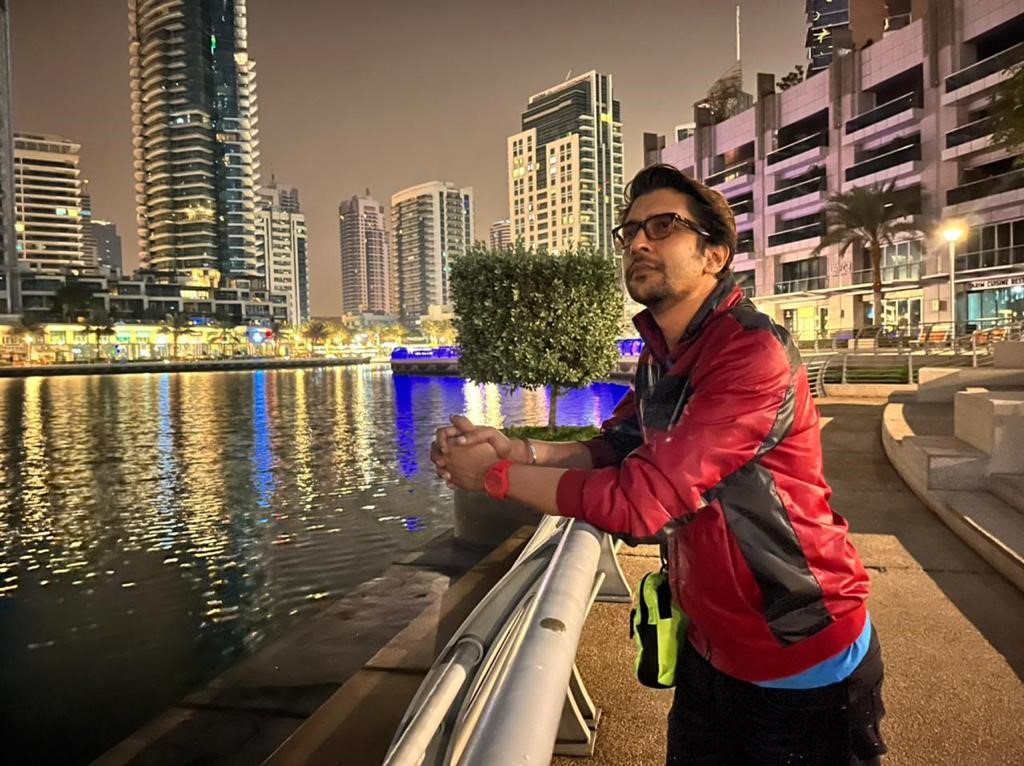
Saad Izhar, an ad film director and producer, is an exceptionally authentic individual. He’s known for his passionate and candid nature amongst his industry peers. Saad is both an artist and a dreamer, tirelessly dedicated to his work and a man who remains something of a mystery. Sometimes, you feel an instant connection with him, like you’ve known him forever, but then he can surprise you, and that’s just a part of his charm.
For years, Saad Izhar pondered a recurring question: What will my life and work look like in old age? It wasn’t a contemplation of mortality, but rather, he wondered about the depth and substance of his creative pursuits as he aged.
He advocated for relinquishing the conventional notion that a film must have a clear beginning, middle, and end. Instead, he suggested that maybe the middle encompasses everything, surrounding the core.
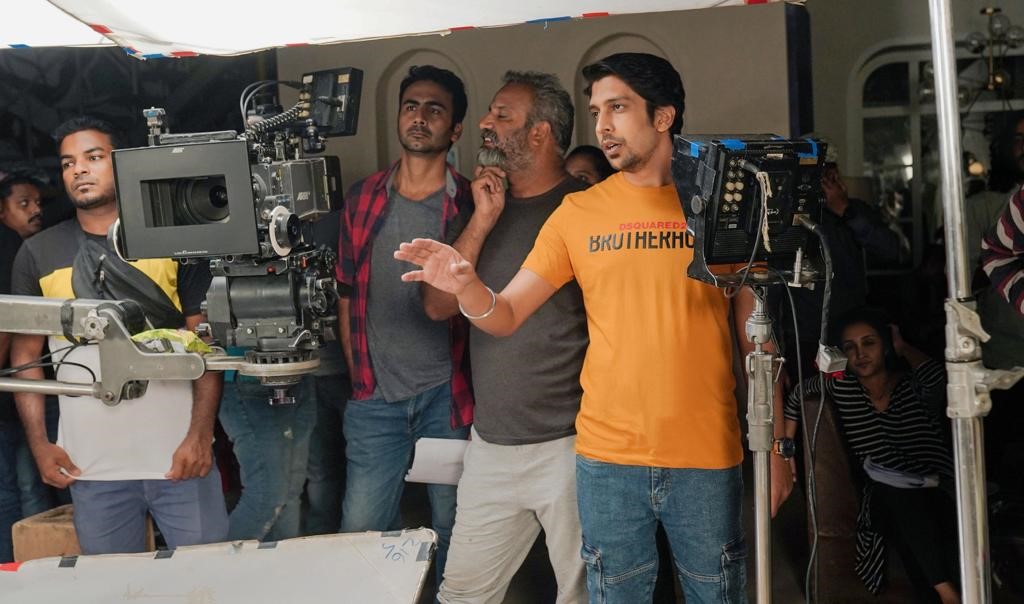
Furthermore, he encouraged the abandonment of preconceived notions, such as conforming to the opinions of Pakistani ad filmmakers or seeking acceptance within the so-called “agency crowd.” He also urged letting go of attachment to the local film ecosystem, as he discovered that his previous association with a “Lollywood cult group” didn’t pan out.
Most challenging of all, he emphasized the importance of shedding self-delusion. He believes in shaping one’s creative work into a pure and unadulterated expression of the intended message, achieved by eliminating the superfluous and transcending the expectations of others.
What has transformed within the film industry that even a filmmaker of your standing and commitment encounters challenges in bringing their cinematic visions to life?
Saad Izhar remarked, “The industry we originally aspired to create as film graduates is no more, it’s dead”. It’s analogous to asking someone who was making Punjabi films in 1980 about the current landscape.” He suggests that today, individual producers, distributors and exhibitors are less inclined to back original voices expressing personal thoughts and ideas with substantial budgets. Instead, they’ve confined such endeavors to what is now labeled as ‘indie’ cinema.
He further elaborates, “I’m not attempting to belittle it. It’s more akin to manufactured content, almost like letting artificial intelligence create a film. While there are undoubtedly outstanding directors and special effects artists producing impressive work, especially in the realm of television commercials, the question arises: What about traditional films? What value do they truly offer? Beyond fleeting satisfaction and a quick fade from your memory and consciousness. So, what’s the genuine impact they provide?”
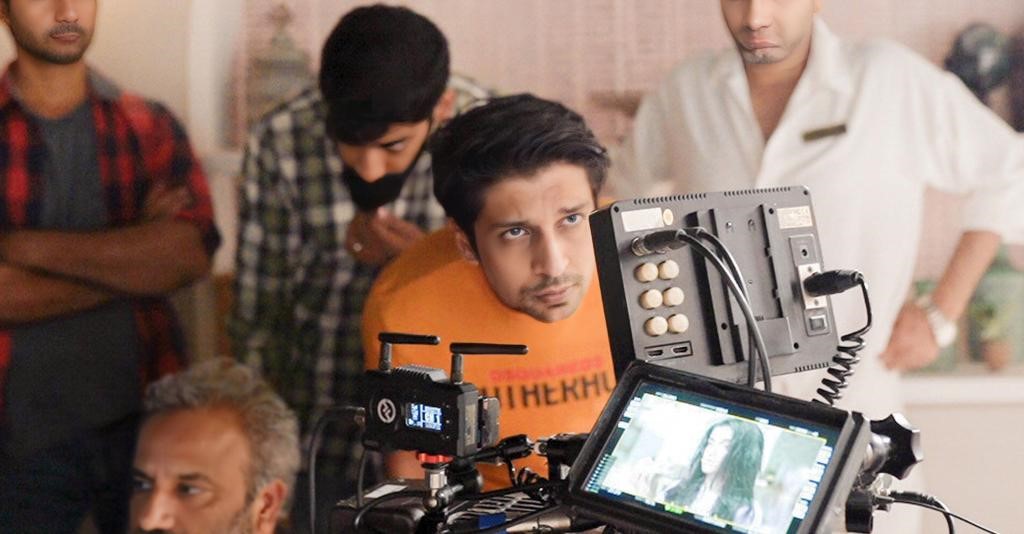
He isn’t averse to technology or a technophobe; in fact, he’s just as enthusiastic about 3D, IMAX, and exploring new formal and technological aspects in filmmaking as anyone else. He’s eagerly anticipating new methods to create a film that truly reflects his vision. He believes in pushing boundaries and making films that resonate deeply. To him, filmmaking is about digging into your guts and emotions to figure out what you genuinely want to convey at this particular point in life. A movie, in his view, should carry a message or meaning; otherwise, there’s no purpose in creating it.
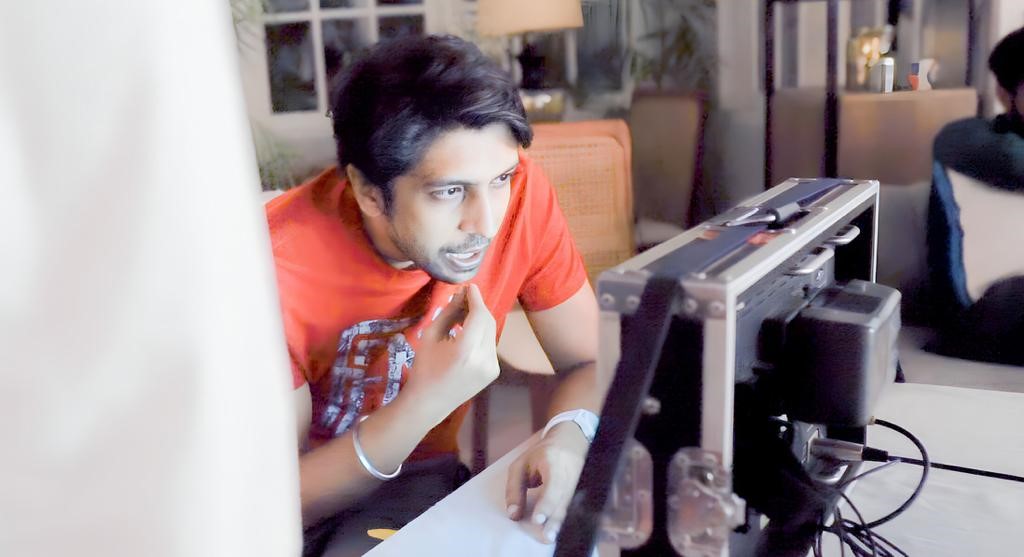
Izhar, a traditionalist at heart, questions the continued use of old camera techniques and gestures in filmmaking. He believes that these methods have become part of the cinematic language, but he questions their relevance, especially when they don’t bring in significant creative rewards.. Saad also acknowledges the changing landscape of filmmaking due to technological advancements, where he’s more interested in storytelling and the accumulation of images and people, as opposed to the technical aspects of filmmaking. He even mentions his experience with executing a beautiful camera move, similar to those seen in his Dove commercials, and raises the question of whether repeating such techniques is necessary. In essence, he’s open to exploring new approaches rather than clinging to tradition just for the sake of it.
AT THE MOMENT
In the soft, pale light of the afternoon, streaming through the window, it created an ethereal halo around his dark hair. Positioned beside him, a small table held a haphazard stack of white pages, their surfaces adorned with his black, fluid, and almost desperate handwriting. With an air of contemplation, Saad shared, “I’m making a note of what I to do each day and document it”
View this post on Instagram
This ritual had been ongoing since 2012. It served as a blend of therapeutic introspection and a practical diary, one he once intended to consign to flames but had since reconsidered, choosing to preserve the pages.
Among the myriad themes that Saad grapples with, self-deception is a prevailing one. It’s a motif that courses through the narratives of his film ideas he narrated this afternoon, “All the stories I craft have much to do with the notions of trust and betrayal.” Izhar identifies with these themes, and they occupy his thoughts incessantly. His diary, in many ways, serves as a tool to explore and confront these inner dimensions. He explained, “People often ask, ‘When this pivotal event occurred in your life, how did it make you feel?’ If it’s truly significant, I could go back, find it, and perhaps be mortified by my own words. I may discover my own rationalizations or instances of self-deception, as I wrestled with my actions. Do you follow?”
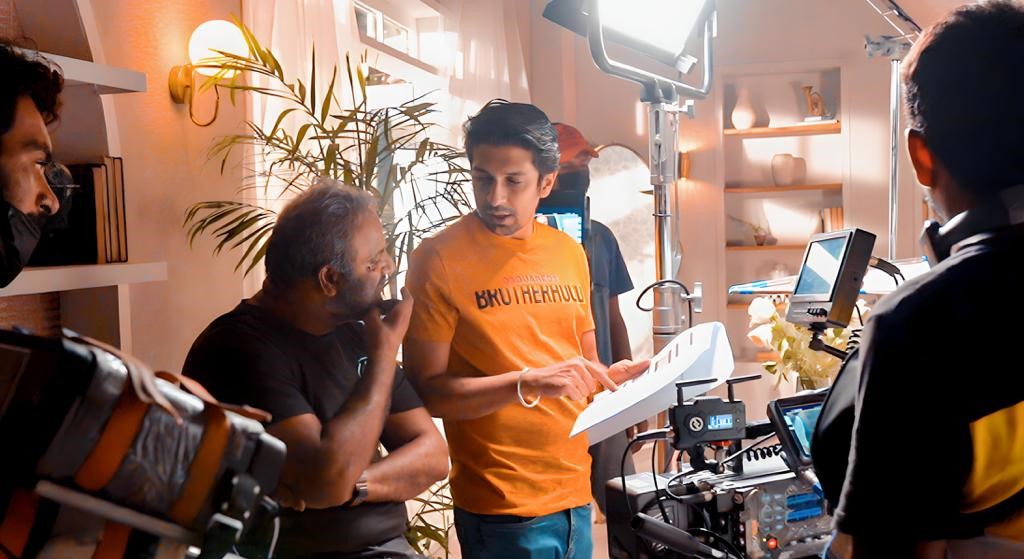
So why does this process hold significance? Saad clarified, “It’s intrinsically tied to what I’m attempting to accomplish.” His mission revolves around delivering unvarnished truth, even when that truth reveals an unflattering side. “I simply aspire to be as candid with myself as humanly possible. And if I can manifest that honesty in my work, perhaps I can extend it to my personal life. Perhaps.”
WHAT REMAINS ?
Well, naturally, the work does. And family. In Saad Izhar’s case, faith plays a significant role. “I was raised in that environment, and I’ve had my moments of pushing it away, rejecting it, only to return,” he reflected. “Yet, all the themes I explore in my stories seem to revolve around these very elements. That must mean that they are still a part of me or I am still a part of them. It’s like I’m on a quest to uncover who I truly am. In other words, how these elements fit into my identity or how I fit into them, whatever ‘they’ might be. You know, as Flannery O’Connor put it, faith can feel like stumbling around in a dark room until you finally find the light switch. So, it’s a dark room, and perhaps there’s a glimmer of light somewhere in there, you know?”
A smile played on his lips, and he offered the quintessential nonchalant shrug of a true Karachiite. He summed it up with a simple question, “So, what’s the plan?”
View this post on Instagram
Saad Izhar shares his life stories on Instagram @saadizhar
